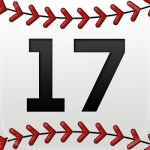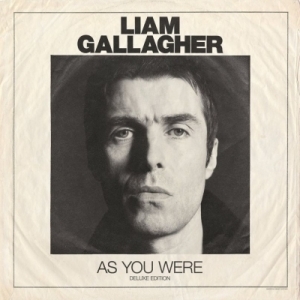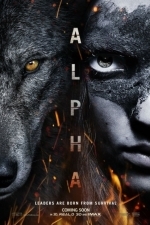Daniel Boyd (1066 KP) rated As You Were by Liam Gallagher in Music
Oct 6, 2017
This is a simple record both for the better and for the worse. This record contains some straightforward rock n' roll bangers, - songs like Wall Of Glass, Paper Crown, For What It's Worth and Bold - as well as some absolute derivative drivel - such as Chinatown, I Never Wanna Be Like You and I Get By. Luckily I'd say the record is about 70% good tunes and 30% garbage.
In terms of the record's sound, I was hoping for something similar to the stuff that Liam penned during the late era of Oasis. I'm Outta Time, from the last Oasis record is one of the best things Liam has ever written in my opinion, so I was hoping for that sort of sound and on this record I got it, (well for 70% of it anyway.) There is also undoubtedly a defiant energy present throughout the album as well, which carries some of the lesser songs on the album and saves them from being totally skip-able. As much as people have doubted Liam in the last few years, due to the underwhelming Beady Eye records and subsequent split and everything that has occurred in his personal life etc, he clearly still believes in himself very firmly and you can feel this brilliant sense of resilience throughout the record's runtime. That's another thing this album has going for it, it is very light on its feet and it never overstays its welcome. The total runtime is just shy of 45 minutes, with each of the fifteen songs hitting around the 4 minute mark, all either slightly above or below that duration which creates this great pace that compliments the album's energy perfectly.
For those of you that were doubtful about this record, as you've already heard what Liam without Noel sounds like in the form of Beady Eye, rest assured; this record is a million times better than either of the Beady Eye records. One thing that surprised me on this record, even though I know how Liam is, was how many times he takes a shot at Noel on it. Every second song is a pop at him and he's not even subtle about it. I know Liam is famous for his big mouth, but I naively thought that this time he was more focused on making a decent record than just slagging off his brother, which he does every day on Twitter anyway. Another downside is the lyrics on some tracks, you can see the next line coming from a mile away and some of the words he uses to rhyme are cringe-worthy. Don't get me wrong, there are some moments of potential greatness on this album as well and at times, it does reach the euphoric heights of some of the old Oasis tracks in terms of the way it makes you feel as a listener.
The production value is well done on this record as well, in the sense that Liam's voice sounds youthful and powerful on the record in contrast to how his voice sounds fairly used up during live gigs, but this is a review of As You Were as an album, not a review of Liam Gallagher's singing voice. The musicianship is also solid throughout with some drum beats you can't help but tap along to and some mega guitar solos.
Overall, I think that this record proved a lot of people wrong and took more than a few people by surprise. Sure, Liam didn't write many of the songs himself, but he does have something to say with this record and it feels impactful. Even if you don't like the music on a technical level, it's hard to fault the guy's resilient, defiant energy that he suitably weaves into this record.
Hazel (1853 KP) rated Touching the Rock: An Experience of Blindness (Notes on Blindness Film Tie-in) in Books
May 23, 2017
It is not often a blind man writes a book, and “write” is a word used due to the lack of a better. John M. Hull gradually lost his sight, registering as blind in 1980, a couple of days before the birth of his son. Although anticipating the event, John struggled to come to terms with his new circumstances and adjust to a new way of living. From 1983 through to 1985, John recorded his thoughts on tape, in diary form, as a way to ascertain and understand his predicament. Originally titled Touching the Rock (1990), John’s book has been republished as Notes on Blindness after the release of the film of the same name.
Initially, John made recordings every day, dictating the everyday occurrences he encountered. Amazingly, despite his disability, John was able to continue as a university lecturer and delve deeper into the world of theology. The way John thinks things through as he speaks reflects his academic abilities. Although he may have despaired at the thoughts of not being able to see his children, he had a fairly positive outlook on life.
John’s thought capacity and religious ideology are evident in his assemblage of diary entries. As a blind person, he learns to see the world in an alternative way, and often feels closer to God as a result. Through these new experiences, John begins to see the light despite the darkness.
The metaphorical descriptions of blindness help the reader to understand the horror and difficulties not being able to see visually provokes. This is heightened by John’s recordings of the bad dreams he often suffers, in which he is able to see. His fixations on these dreams are assumedly a fascination with visual imagery, which he does not have access to in his waking life.
It is hard not feel sorry for John as he reports the conversations he has with his young children. The effort to communicate and play with them is far greater than a seeing parent. Remarkably, as John begins to adjust to his new lifestyle, his children take the situation in their stride.
Notes on Blindness is also an educational narrative for those without sight problems. John explains the things other people, in attempts to be helpful, do that result in making things far more confusing for John as he tries to navigate his way from one place to another. Despite what most think, blind people are fairly good at walking routes they are familiar with, and, with the help of a stick, can safely travel through new areas. Once people start shouting instructions, it is difficult to pay attention to the location and listen to everyone else at the same time.
John’s voice is extremely articulate, and his thoughts profound, which may suggest heavy editing when compiling the recordings into written form. However, as he is an academician, his eloquence of speech does not feel forced or faked.
Notes on Blindness remains the same as the original publication but with the added inclusion of an introduction by Cathy Rentzenbrink, and an epilogue by his wife Marilyn, written in 2016, a year after his death. These, the latter in particular, provide an insight into how John’s blindness affected those around him and emphasises what a truly remarkable man he was.
Of the many memoirs available on bookshelves today, Notes on Blindness is a truly unique publication. It is not telling a story, or recounting a well-lived life, but gives great insight into the world of the blind. As John’s thoughts were not originally recorded with intention of being available to everyone, they are all the more personal and honest, provoking emotion and providing the reader with a new way of seeing. It is a book that will stay with you for a very long time.
Hazel (1853 KP) rated Notes on Blindness: A Journey Through The Dark in Books
Dec 17, 2018
It is not often a blind man writes a book, and “write” is a word used due to the lack of a better. John M. Hull gradually lost his sight, registering as blind in 1980, a couple of days before the birth of his son. Although anticipating the event, John struggled to come to terms with his new circumstances and adjust to a new way of living. From 1983 through to 1985, John recorded his thoughts on tape, in diary form, as a way to ascertain and understand his predicament. Originally titled <I>Touching the Rock</I> (1990), John’s book has been republished as <I>Notes on Blindness</i> after the release of the film of the same name.
Initially, John made recordings every day, dictating the everyday occurrences he encountered. Amazingly, despite his disability, John was able to continue as a university lecturer and delve deeper into the world of theology. The way John thinks things through as he speaks reflects his academic abilities. Although he may have despaired at the thoughts of not being able to see his children, he had a fairly positive outlook on life.
John’s thought capacity and religious ideology are evident in his assemblage of diary entries. As a blind person, he learns to see the world in an alternative way, and often feels closer to God as a result. Through these new experiences, John begins to see the light despite the darkness.
The metaphorical descriptions of blindness help the reader to understand the horror and difficulties not being able to see visually provokes. This is heightened by John’s recordings of the bad dreams he often suffers, in which he is able to see. His fixations on these dreams are assumedly a fascination with visual imagery, which he does not have access to in his waking life.
It is hard not feel sorry for John as he reports the conversations he has with his young children. The effort to communicate and play with them is far greater than a seeing parent. Remarkably, as John begins to adjust to his new lifestyle, his children take the situation in their stride.
<i>Notes on Blindness</i> is also an educational narrative for those without sight problems. John explains the things other people, in attempts to be helpful, do that result in making things far more confusing for John as he tries to navigate his way from one place to another. Despite what most think, blind people are fairly good at walking routes they are familiar with, and, with the help of a stick, can safely travel through new areas. Once people start shouting instructions, it is difficult to pay attention to the location and listen to everyone else at the same time.
John’s voice is extremely articulate, and his thoughts profound, which may suggest heavy editing when compiling the recordings into written form. However, as he is an academician, his eloquence of speech does not feel forced or faked.
<i>Notes on Blindness</i> remains the same as the original publication but with the added inclusion of an introduction by Cathy Rentzenbrink, and an epilogue by his wife Marilyn, written in 2016, a year after his death. These, the latter in particular, provide an insight into how John’s blindness affected those around him and emphasises what a truly remarkable man he was.
Of the many memoirs available on bookshelves today,<i> Notes on Blindness</i> is a truly unique publication. It is not telling a story, or recounting a well-lived life, but gives great insight into the world of the blind. As John’s thoughts were not originally recorded with intention of being available to everyone, they are all the more personal and honest, provoking emotion and providing the reader with a new way of seeing. It is a book that will stay with you for a very long time.
James P. Sumner (65 KP) rated Zombieland: Double Tap (2019) in Movies
Oct 21, 2019
Fast-forward a decade, and I entered "Zombieland: Double Tap (2019)" with similar scepticism. I was concerned the studios were going to take what had become a modern classic and simply rehash it in a poor attempt to cash in on its previous success. But then it started and 'Master of Puppets' began playing and I knew I was in for a treat!
Picking up seamlessly where the first one left off, both in terms of story and tone, Double Tap begins with the our group of heroes approaching the White House, which they decide is a good place to lay down some roots in the post-apocalyptic, zombie-infested world they find themselves in.
It isn't long before the youngest member of the group, Little Rock, tires of their attempt at normality, desperate for interaction with any survivors her own age. After Wichita and Columbus fall out, the sisters take off, prompting a road trip for Tallahassee and Columbus to bring them back.
This is a masterclass in how a comedy movie should be executed. Laughs are frequent but not forced. The script is well-written and packed with the same sharp, witty dialogue found in its predecessor. And it manages to maintain its pacing for the duration - something few films can pull off. Too often, comedy films start off with an hilarious first act, but then runs out of steam by Act 2 before ruining the final act by trying to be too serious.
Yes, I'm looking at you "Baywatch (2017)"!
But Double Tap doesn't suffer from any of that. It retains the heart that made it stand out the first time around, whilst building on the laughs and relationships between the characters.
I found this film a little more meta than I remember the first one being. Lots of references to Zombie pop culture, like "The Walking Dead" and "Dawn of the Dead" - both of which Columbus refers to as unrealistic, which is ironically funny.
Of course, being a sequel, you need to introduce some new faces. The first one is Madison, played brilliantly by the beautiful Zoey Deutch. When the airhead blonde stereotype first appears, you immediately cringe and worry she's going to be the annoying tag-along that hopefully dies... yet the character is written in such a way that she effortlessly fits into the group and quickly becomes a likeable addition.
Next is Nevada, portrayed by the ever-reliable Rosario Dawson. She's a hard-hitting, Zombie-killing, Elvis-loving beauty who is an immediate and obvious match for Tallahassee.
And speaking of him, Woody Harrelson again steals the show with his incredibly funny, heart-warming and cringe-inducing turn as the violent Redneck. His lines are hilarious, even when they're not meant to be, and they're delivered inch-perfect every time.
The soundtrack is spot-on, and the visuals fit the type of movie this is trying to be. Overall, this film is a real treat. It flies by, provides many, many laughs, and also tugs on the heart strings just a little bit. It has everything that made the first one great, and it adds just enough to make this feel like more than just a remake.
Oh, and without spoiling things, it ain't over 'til the credits stop rolling... just saying! :-)
Not to be missed!
Gareth von Kallenbach (980 KP) rated Alpha (2018) in Movies
Jul 2, 2019
Jóhannes Haukur Jóhannesson) as Tau, his father.
Tau is the tribe leader, and must determine whether the young male tribe
members are ready for the annual hunt. He tests all the spear points
crafted by the boys, and passes or fails them based on the craftsmanship
of the arrowheads.
Keda is one of the only two young men that pass the test, and in spite
of his mothers (and his own) reservations, joins the hunt.
Keda isn’t a strong figure, like his father Tau, and the movie shows
some of the tension and strife this causes the father and son. Tau is
trying to teach Keda to be a leader, and Keda seems too soft-hearted to
be able to bear the task. Keda has a hard time with the killing of
animals, even though it is needed to sustain the tribe.
The annual hunt consists of tracking down a herd of bison over a span of
days, and then creeping up on them on their grazing grounds and spooking
them into headlong flight over the edge of a high cliff. The hunters
must keep the herd from turning back to the open plain by throwing their
spears and running full-tilt at the bison. The run to push the bison
over the cliffs edge starts off well, and then takes a tragic turn when
one of the bison turns towards the hunters and charges at Keda. Kedas
confidence breaks and he turns tail to run, with the bison chasing him
down. When the bison lowers his head to charge at Keda, the bisons horn
catches in Kedas clothing and the bison turns towards the cliff face and
dump Keda over the edge.
Keda miraculously lands on a rock outcropping about half way down the
cliff face, but it is still too far for Tau to reach him. Keda is
unconscious, and does not respond to his fathers calls.
Tau is convinced that he must leave his son for dead and head towards
home in order to be able to provide for the tribe.
A day later, Keda wakes and finds himself alone, with broken bones, and
no way to get off the cliff face.
What follows is a story of coming of age and determination. Keda must
find his way off the cliff face, and using the tools given to him by his
father on the way to the bison hunting grounds, find his way home. He
finds unlikely companionship in a wolf that he injured while the wolf
pack was hunting him down to try to eat him, which he nurses back to
health. He names the wolf “Alpha”, but in truth, it is Keda who is
learning to become the alpha, or leader of the pack.
The scenery in the movie is breathtaking, and the movie really comes to
life with the 3D option. I can only imagine that it would be even better
in IMAX.
There were pieces of the film that were entirely un-realistic, but they
were rather quickly covered up by the fast-paced nature of the film.
The only part I really groaned at was the very end scene, but I will let
you draw your own conclusions on that so that I don’t ruin it for you!
My son just turned 10 and he liked it a lot, but did mention that a few
parts were not 100% “kid-friendly” due to the scare-factor. He was
specifically referring to one scene that made us both literally jump in
our seats. He said over all the movie was great and that he enjoyed it
immensely.
I would give this movie 3.5 out of 5 stars, and recommend that you see
it in IMAX 3D if you are able!

MLB Manager 2017
Games
App
Guide your favorite Major League Baseball franchise to glory! MLB Manager 2017, officially licensed...

Lose It! – Calorie Counter
Health & Fitness and Lifestyle
App
Lose It! is the world’s most fun and effective weight loss program! Simply download the app, set...

Ab Workouts MMA+ FREE Core Strength Abdominal Flex
Health & Fitness and Sports
App
Train Like an MMA Pro Fighter! The world’s first app that strengthens every abdominal muscle...

The Negotiation: A BDSM Romance
Book
Sebastian stared at her. Like magic, she now conveyed complete respect and submission. His cock...

Ab Workouts MMA PRO - Core Strength Abdominal Flex Training & Personal Abs Trainer
Sports and Health & Fitness
App
Train Like an MMA Pro Fighter! The world’s first app that strengthens every abdominal muscle...




